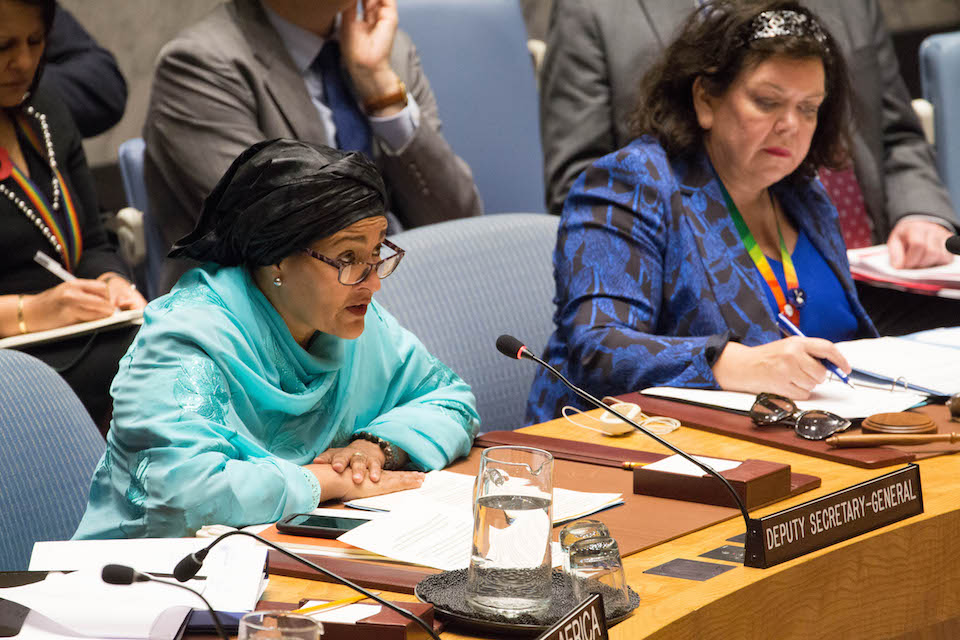Placing women's rights and representation at the heart of peacemaking in Africa
Statement by Ambassador Karen Pierce, UK Permanent Representative to the UN, at the Security Council briefing on Peace and Security in Africa.

I wanted to say that we very much share the very strong support, Deputy Secretary-General and Ambassador Mohammed, for your visit. I think this has been fantastic venture in highlighting the centrality of the the Women, Peace and Security agenda to African peace and security.
And the United Kingdom very much supports all of those colleagues today who’ve called for more women in both political processes in general, but also specifically in peace processes. I think that means in turn, an even greater focus needs to be placed on the issue of girls education so that we can start to help young girls and women take their rightful place in community top tables and in the top tables of their nations.
If I can mention a few country specific examples, the United Kingdom has a strong partnership with Somalia on serving and protecting women and girls. We work to include women in reconciliation efforts, security reforms and political dialogue, address sexual and gender-based violence, and we support access to comprehensive sexual and reproductive health care. And I very much endorse what others have said today about the full, equal and meaningful participation of women in Somalia’s upcoming elections. We encourage Somalia to maintain her commitment to the 30 percent quota for women in parliament and we hope to see the Sexual Offences Bill and the Female Genital Mutilation Bill making swift progress through the Somali legislature.
Turning to Sudan, I think the Council very much wishes Sudan well and wants to do everything we can to support her. The United Kingdom shares that. We were delighted to hear the Prime Minister reiterate his commitment to the full participation of women in government at the General Assembly in September. We’ve all reheard referred to Alaa Salah’s very important contribution to the debate last week and I think we look forward to even more engagement and participation in public life.
We were very pleased that you were able to visit, DSG, the country of Eritrea. There’s a clear opportunity for step-change in UN and AU engagement with Eritrea, following the historic peace agreement with Ethiopia, the lifting of sanctions, and we believe it’s essential that increased international engagement delivers further improvements in regional security and concrete progress on human rights there.
Finally, on Ethiopia, I join other colleagues in paying tribute to Prime Minister Abyei and his award of the Nobel Peace Prize – a very important testimony to his role in promoting peace in the region and political reform at home. What everyone has said about the Ethiopian president is extremely important. It’s very good that 50 percent of cabinet positions are reserved for women; this is a lesson to us all, perhaps. We hope to see Ethiopia build on this progress and promote women’s participation as voters and candidates in upcoming elections and reform, security and justice institutions to make them more responsive to the needs of women and girls. Continued outbreaks of violence do concern us and highlight the need for all actors to work towards reformed institution and the importance of peaceful dialogue.
We wanted to make this session interactive, so I’d like to ask a few questions, if I may, in addition to those colleagues have already raised. One about girls education: how can we make sure that increased investment in girls education translates into women’s economic empowerment? I think the Indonesian ambassador already asked about what practical steps would improve women’s participation in peacekeeping; you’ve given us some, but if there’s more that can be said on that, we look forward to it. And what more support do you think women mediators and civil society actors need so that they can strengthen their participation in political dialogue?